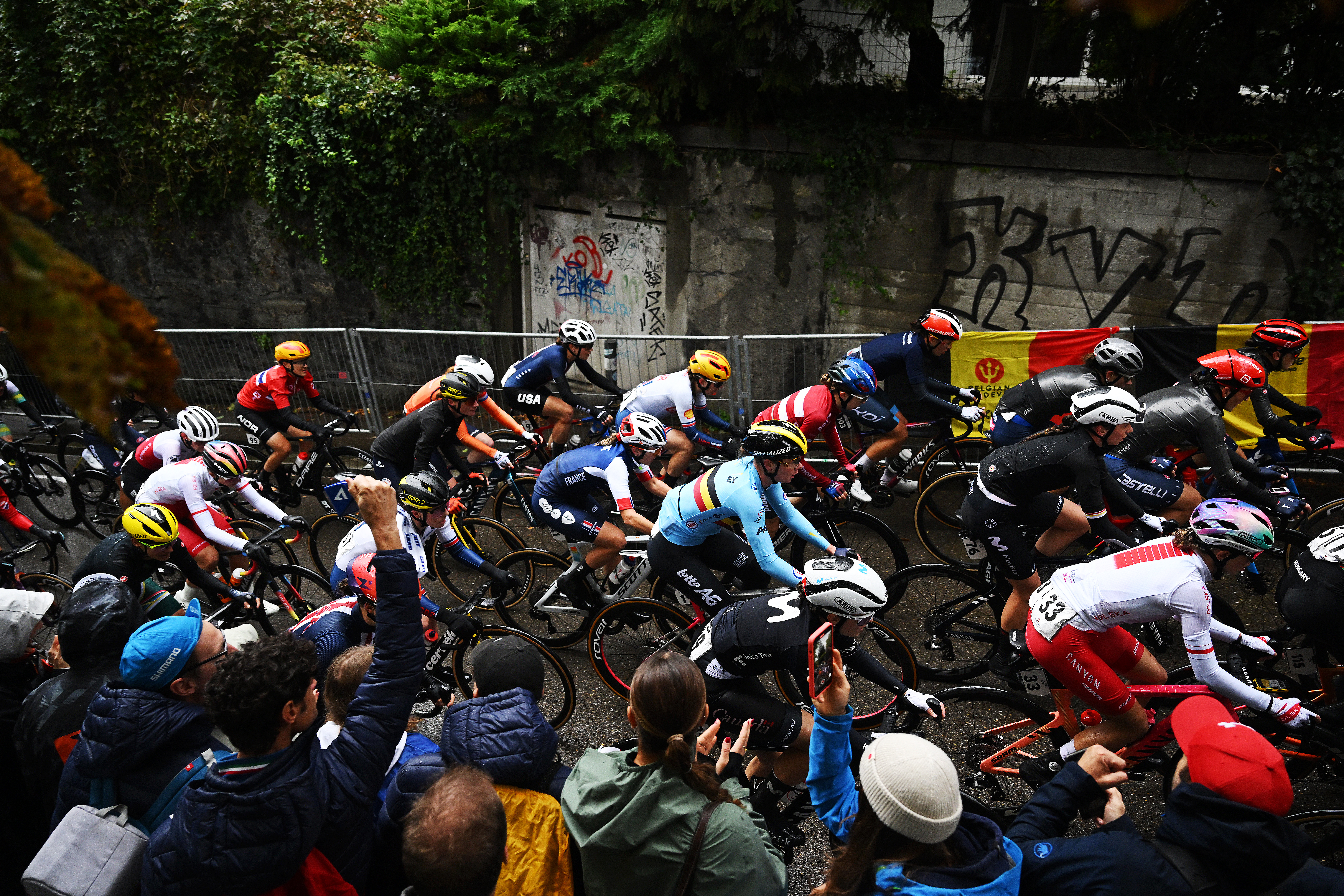All riders to use GPS trackers at 2025 World Championships after Muriel Furrer's death
UCI trialled technology at women's Tour de Romandie last month


The latest race content, interviews, features, reviews and expert buying guides, direct to your inbox!
You are now subscribed
Your newsletter sign-up was successful
All riders will compete with GPS tracking devices at this September’s UCI Road World Championships in Rwanda, cycling's governing body, the UCI has confirmed.
The measure comes after Swiss 18-year-old Muriel Furrer died following a crash in the junior women’s road race at the event in Zürich, Switzerland last year. According to reports, Furrer lay alone for almost an hour and a half before she was discovered at the side of the road. She later died as a result of a head injury.
As part of the UCI’s SafeR initiative to improve rider safety, it has been decided all competitors – from the junior events up to the elite level – will carry tracking devices at this year’s World Championships. The news was first announced last month, but confirmed again on Friday.
The technology was trialled at the Tour de Romandie Féminin last month, where one rider per team carried a GPS tracker.
"This system, operated from the UCI Road World Championships control centre, will enable real-time monitoring of data regarding the position and speed of the entire peloton, thus allowing for immediate identification of any unusual situations, such as a rider suddenly stopping on the course," the UCI release said.
"In such a case, the rider's exact position will be transmitted to the relevant parties in the convoy – organisers, UCI Commissaires, medical and security services – so that appropriate measures can be taken without delay.|
With race radios not allowed at the World Championships, concerns were raised in the wake of Furrer’s death about how rider emergencies can be alerted. At the time, UCI president David Lappartient said it was “too early” to say if radios would have made it simpler to locate Furrer.
The latest race content, interviews, features, reviews and expert buying guides, direct to your inbox!
Lappartient has since suggested his openness to implementing GPS tracking in “all WorldTour events” – “it would enable us to see where they are if they have a crash,” he told Cyclist.
Earlier this year, the Tour de Suisse introduced rider and convoy tracking, claiming to be the first race in the world to do so.
Riders' bikes at the race were fitted with small trackers that sounded an alarm in the case of “anomalies”, race director Olivier Senn explained, “such as if the bike does not move for 30 seconds, leaves the route or abruptly changes speed. In such cases, we are notified immediately and can react.”
The Tour de Suisse fell into mourning in 2023 following the death of Gino Mäder, who crashed at speed descending the Albula Pass.
“We cannot completely prevent crashes with these measures,” Senn said of GPS tracking, “but we are doing everything we can to ensure that all information is available to the teams and that the consequences are as minimal as possible.”
The UCI World Championships will take place in Kigali, Rwanda between 21-28 September.
At the three-day Tour de Romandie Féminin, which took place from 15-17 August, five women's professional teams were excluded from the race over a row about the GPS systems.
The five teams were not allowed to race due to not nominating the a rider to use the GPS tracker, not for wholesale refusal of the system. A joint statement from the five teams said they were "shocked and disappointed" by the decision.

Tom joined Cycling Weekly as a news and features writer in the summer of 2022, having previously contributed as a freelancer. He is fluent in French and Spanish, and holds a master's degree in International Journalism. Since 2020, he has been the host of The TT Podcast, offering race analysis and rider interviews.
An enthusiastic cyclist himself, Tom likes it most when the road goes uphill, and actively seeks out double-figure gradients on his rides. His best result is 28th in a hill-climb competition, albeit out of 40 entrants.
You must confirm your public display name before commenting
Please logout and then login again, you will then be prompted to enter your display name.